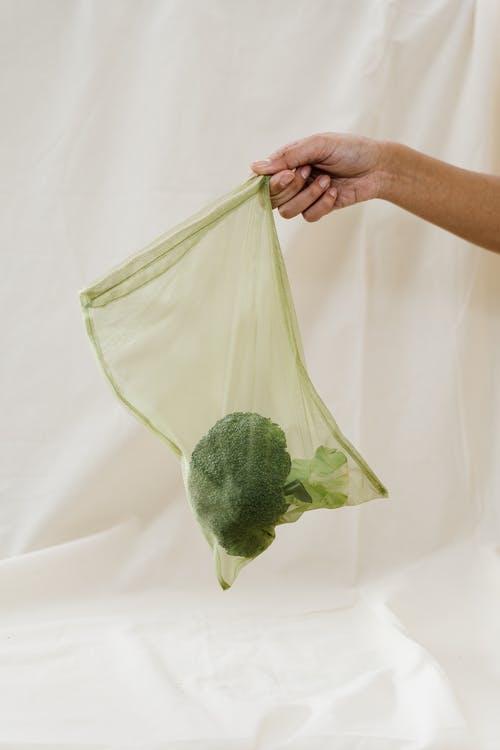In the pursuit of a sustainable lifestyle, every aspect of our daily routine matters, including what we do with our vegetable waste. Embracing eco-friendly practices in the kitchen not only reduces our environmental footprint but also contributes to a healthier planet. This guide explores creative ways to transform vegetable waste into sustainable solutions for a greener and more sustainable kitchen.
Harnessing the Power of Kitchen Scraps
Fruit and Vegetable Peels: Natural Cleaners
Before discarding peels from fruits and vegetables, consider their hidden potential as natural cleaners. Citrus peels, in particular, contain natural oils that work wonders as degreasers and add a refreshing scent. Create a homemade citrus-infused vinegar cleaner by soaking peels in white vinegar for a few weeks. Strain the mixture, dilute it with water, and use it as an effective and eco-friendly cleaning solution.
Coffee Grounds: Odor Neutralizers
Coffee grounds, often overlooked after brewing, possess powerful odor-absorbing properties. Place used coffee grounds in a container and position it in the refrigerator, freezer, or other areas with unwanted odors. The grounds act as natural deodorizers, absorbing and neutralizing smells while repurposing a byproduct that would otherwise end up in the trash.
Composting for a Sustainable Garden
Creating Nutrient-Rich Compost
Composting is a cornerstone of sustainable living, and vegetable waste plays a vital role in creating nutrient-rich compost for gardens. Establish a composting system in your kitchen by designating a bin for food scraps like fruit and vegetable peels, coffee grounds, and eggshells. These organic materials break down into compost, a valuable soil conditioner that enhances fertility and promotes plant growth. Your garden will thrive with this nutrient-rich elixir created from what would have been considered waste.
Vermicomposting: Worms as Eco-Heroes
Take composting to the next level with vermicomposting, a process that involves using worms to break down organic waste. Red worms, such as Eisenia fetida, consume kitchen scraps, transforming them into nutrient-dense worm castings. Setting up a vermicomposting bin not only reduces vegetable waste but also provides an ongoing source of high-quality fertilizer for indoor and outdoor plants.
Regrowing Vegetables from Scraps
Kitchen-to-Table Regrowth
Certain vegetables have the remarkable ability to regrow from scraps. Instead of discarding the bottom ends of green onions, lettuce, or celery, place them in water or soil, and watch them sprout new growth. This sustainable practice not only minimizes waste but also provides a continuous supply of fresh produce, right from your kitchen to the table.
Creative Culinary Innovations
Infusing Flavors with Herb Stems
Herb stems, often tossed aside, contain concentrated flavor that shouldn’t go to waste. Instead of discarding them, infuse stocks, soups, or sauces with herb stems to extract their aromatic essence. This simple technique enhances the depth of flavor in your culinary creations, demonstrating that even seemingly inedible parts of vegetables can contribute to a more sustainable kitchen.
Citrus Zest: Culinary Elevation
Citrus zest, extracted from peels, elevates the flavor profile of dishes with its vibrant and aromatic qualities. Instead of disposing of citrus peels, use a zester or grater to collect the zest. Incorporate it into marinades, dressings, or baked goods for a burst of citrusy goodness. This culinary innovation not only reduces waste but also adds a zing of flavor to your recipes.
Nurturing Nature: A Greener Tomorrow
As we adopt sustainable practices in our kitchens, we become stewards of a greener planet. Every action, no matter how small, contributes to a collective effort in reducing waste and promoting a more sustainable way of life.
Sowing Seeds of Change: Cultivating a Sustainable Future
The journey toward a sustainable kitchen is a continuous process of creativity and mindful consumption. By harnessing the power of vegetable waste, we sow the seeds of change, nurturing a sustainable future for ourselves and generations to come.
Cultivating a Sustainable Kitchen: Small Steps, Big Impact

In the quest for a sustainable kitchen, transforming vegetable waste into eco-friendly solutions is not just a practical endeavor; it’s a commitment to a greener planet. As we explore creative ways to repurpose kitchen scraps, compost, and regrow vegetables, we contribute to a cycle of sustainability that transcends our daily routines.
Growing Green: Sustaining the Momentum
In our sustainable kitchen journey, every action—whether it’s composting, regrowing vegetables, or infusing flavors—adds momentum to the growing green movement. As you embark on this path, may your kitchen become a beacon of eco-conscious practices, inspiring positive change for our planet.

